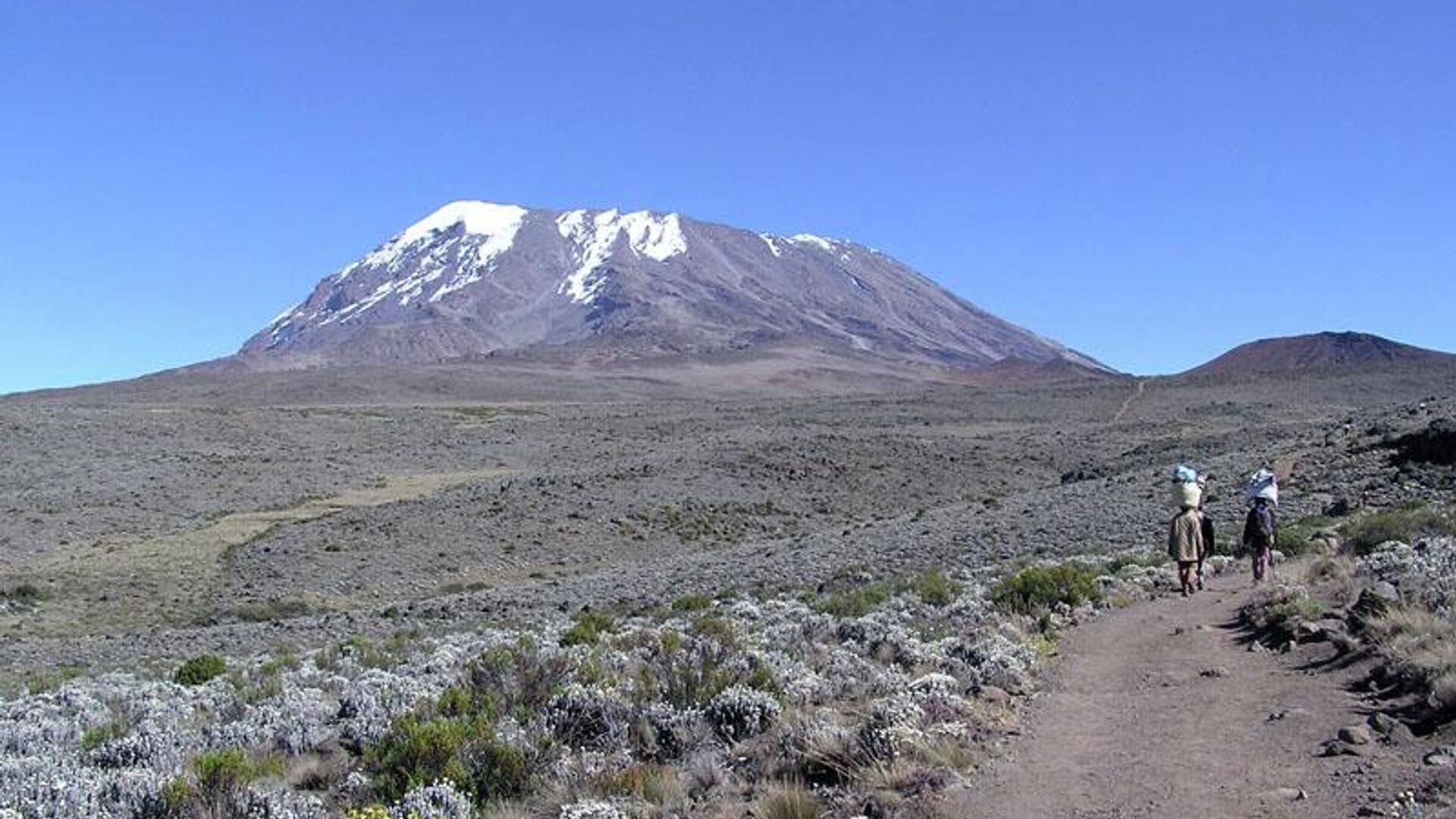https://sputnikglobe.com/20221102/tanzanias-armed-forces-deployed-in-fighting-kilimanjaro-wildfires-1102942673.html
Tanzania's Armed Forces Deployed In Fighting Kilimanjaro Wildfires
Tanzania's Armed Forces Deployed In Fighting Kilimanjaro Wildfires
Sputnik International
Africa's highest mountain and one of the world's most famous tourist destinations is on fire for the second time in two years. In October 2020 thousands of... 02.11.2022, Sputnik International
2022-11-02T12:31+0000
2022-11-02T12:31+0000
2022-11-23T11:37+0000
africa
tanzania
kilimanjaro mountain
wildfire
climate change
east africa
https://cdn1.img.sputnikglobe.com/img/07e6/08/11/1099705475_0:75:800:525_1920x0_80_0_0_c8fb5efd96caa2979534af298decb2dc.jpg
Hundreds of troops from the Tanzania People’s Defence Forces (TPDF) have joined firefighters to help battle fires on Kilimanjaro's slopes. The military are going to cooperate with other agencies and volunteers to prevent the inferno that has been carrying on for two weeks, from destroying more of the flora and fauna in the vicinity.The troops have been deployed after the efforts of hundreds of firefighters, national park staff, tour guides and civilians to extinguish the fire proved largely ineffective.The exact cause of the fires is still unknown. The present disaster began on 21 October near a camp located along a popular hiking route. According to the Tanzanian government, the fire was most probably caused by human activities.Drought, strong winds and layers of decaying organic material are named as factors that hinder the firefighting.Prolonged droughts in Africa have had a devastating effect on the continent's population and have been blamed on global warming. According to UNEP, Africa suffers disproportionally from the effects of climate change - it suffers the worst effects but only contributes two or three percent to global greenhouse gas emissions.
africa
tanzania
kilimanjaro mountain
east africa
Sputnik International
feedback@sputniknews.com
+74956456601
MIA „Rossiya Segodnya“
2022
News
en_EN
Sputnik International
feedback@sputniknews.com
+74956456601
MIA „Rossiya Segodnya“
Sputnik International
feedback@sputniknews.com
+74956456601
MIA „Rossiya Segodnya“
kilimanjaro wildfires, tanzania's armed forces, natural disaster, wildfires in africa,
kilimanjaro wildfires, tanzania's armed forces, natural disaster, wildfires in africa,
Tanzania's Armed Forces Deployed In Fighting Kilimanjaro Wildfires
12:31 GMT 02.11.2022 (Updated: 11:37 GMT 23.11.2022) Africa's highest mountain and one of the world's most famous tourist destinations is on fire for the second time in two years. In October 2020 thousands of hectares of forest on Kilimanjaro's slopes were destroyed in a disaster that went on for a week.
Hundreds of troops from the Tanzania People’s Defence Forces (TPDF) have joined firefighters to help battle fires on
Kilimanjaro's slopes. The military are going to cooperate with other agencies and volunteers to prevent the inferno that has been carrying on for two weeks, from destroying more of the flora and fauna in the vicinity.
“Officers and men of the TPDF have already arrived in the Siha and Mweka areas in Kilimanjaro Region ready to fight the fire,” a statement from an army official says.
The troops have been deployed after the efforts of hundreds of firefighters, national park staff, tour guides and civilians to extinguish the fire proved largely ineffective.
The exact cause of the fires is still unknown. The present disaster began on 21 October near a camp located along a popular hiking route. According to the Tanzanian government, the fire was most probably caused by human activities.
Drought, strong winds and layers of decaying organic material are named as factors that hinder the firefighting.
Prolonged droughts in Africa have had a devastating effect on the continent's population and have been blamed on global warming. According to
UNEP, Africa suffers disproportionally from the effects of climate change - it suffers the worst effects but only contributes two or three percent to global greenhouse gas emissions.


